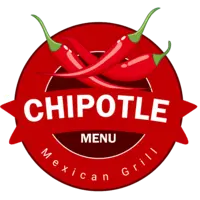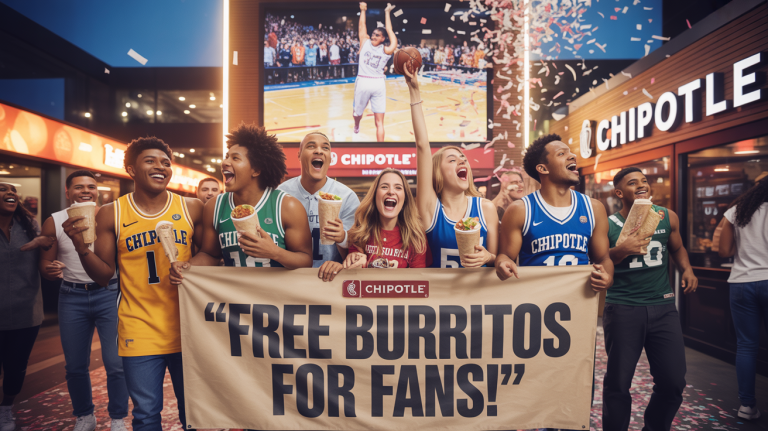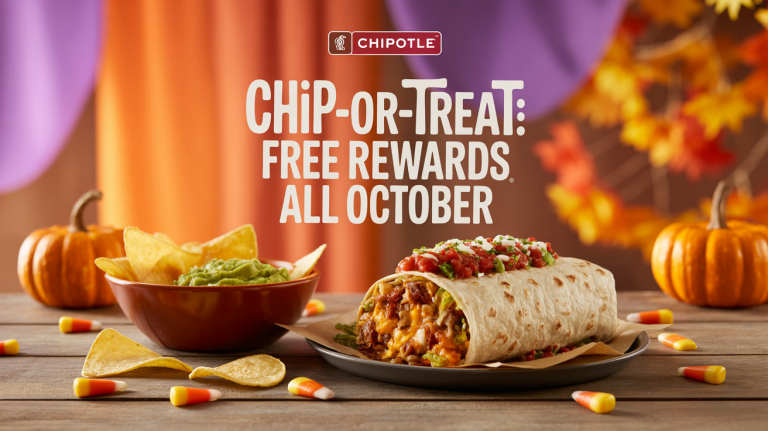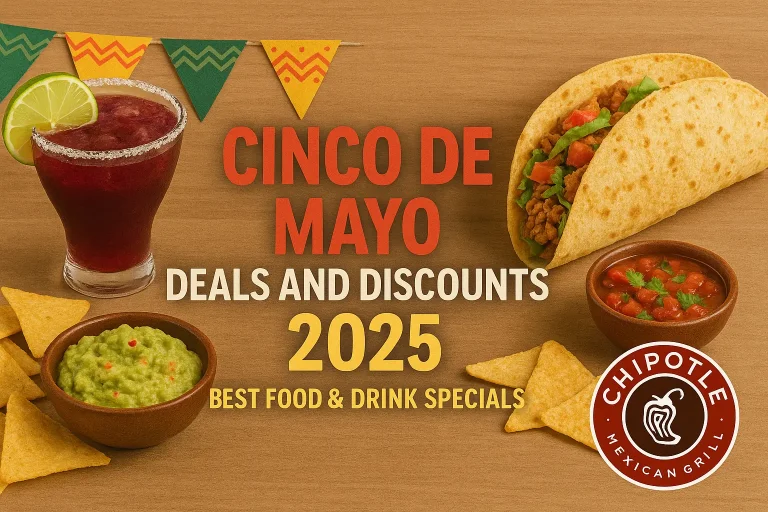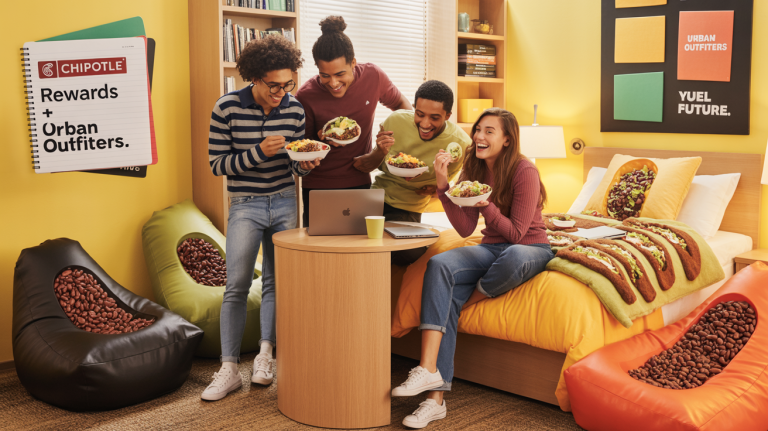Chipotle college athletic programs
The partnership between Chipotle and student athletes has taken a new direction with the launch of the Chipotle college athletic programs. For the 2025–26 school year, Chipotle is working with The Ohio State University, University of Florida, and University of Georgia to provide thousands of athletes with free meals during their competitive seasons. The initiative expands on Chipotle’s earlier efforts and demonstrates a growing commitment to fueling athletes with accessible, nutritious food while aligning with Name, Image, and Likeness (NIL) opportunities.
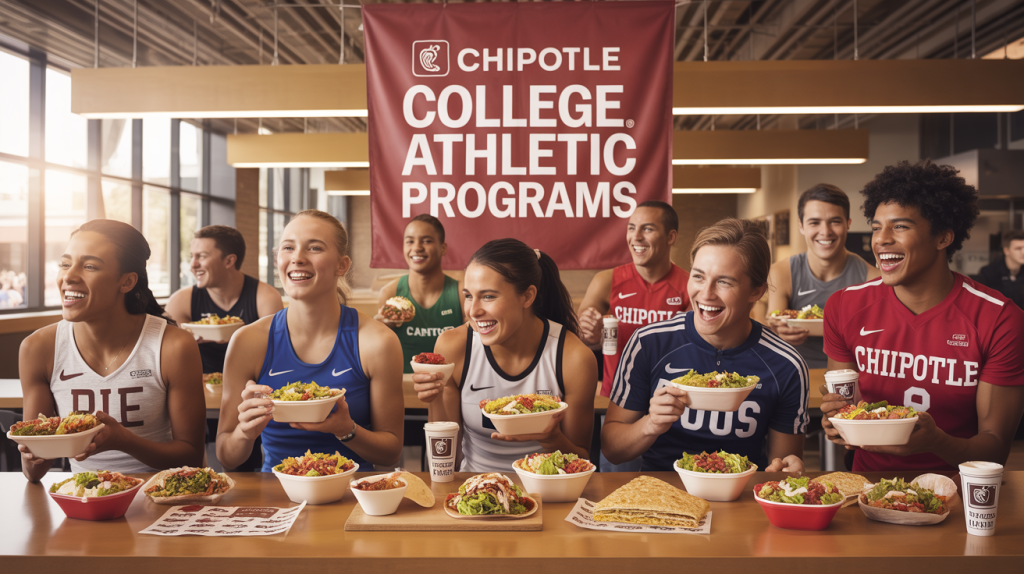
What the Chipotle College Athletic Programs Offer
The Chipotle college athletic programs grant every student athlete at Ohio State, Florida, and Georgia access to one free entrée per week for 15 weeks. Each athlete, whether on scholarship or a walk on, receives a customized Chipotle card tied to their school identity. Nearly 2,000 athletes across football, basketball, volleyball, and other sports are part of this rollout.
By offering structured meal support, Chipotle positions itself not only as a restaurant brand but also as a nutrition partner for collegiate athletics. The program ensures players receive consistent access to real food that aligns with both training and recovery needs.
Expanding Beyond Ohio State
In 2025, Chipotle introduced its first college specific meal card at The Ohio State University. The response was strong, with student athletes embracing Chipotle as a regular meal choice. This year, the Chipotle college athletic programs have expanded to two more schools: the University of Florida and the University of Georgia.
This expansion reflects Chipotle’s strategy to build long term relationships with major athletic programs while aligning with schools where student demand is already high. Data shows that all three universities rank among the top 30 campuses nationwide in Chipotle consumption.
Why Student Athletes Embrace Chipotle
Surveys conducted among athletes at these schools highlight why the Chipotle college athletic programs make sense.
- At Ohio State, 98% of athletes report eating Chipotle at least once a month.
- At Florida, 94% of athletes rank Chipotle among their top three restaurants.
- At Georgia, nearly 80% of athletes consider Chipotle part of their training regimen.
These figures underscore how Chipotle’s menu aligns with the needs of busy student athletes who balance practice, competition, and academics. Fast service, customizable meals, and ingredients without artificial additives make the brand an easy fit for athletes seeking reliable nutrition.
Voices from the Universities
Leadership at all three universities has supported the Chipotle college athletic programs.
- Logan Hittle, Associate Athletic Director at Ohio State, emphasized the value of Chipotle’s inclusive approach that benefits every student athlete.
- Darren McPhail, General Manager of Florida Gators Sports Properties, pointed to the program as a way to strengthen athlete success both on and off the field.
- Alan Thomas, Senior Associate Athletic Director at Georgia, connected the partnership to the school’s focus on providing strong nutrition resources for athletes.
By addressing the needs of entire athletic departments rather than select teams, Chipotle demonstrates an approach that resonates with universities seeking equitable support for all athletes.
Marketing Campaigns and Athlete Involvement
The Chipotle college athletic programs are supported by new advertising campaigns that feature prominent athletes.
At Ohio State, safety Caleb Downs, linebacker Sonny Styles, and wide receiver Carnell Tate starred in a commercial that highlights their preparation for another national championship run.
At Florida, quarterback DJ Lagway and former basketball guard Walter Clayton Jr. appeared in a campaign centered on the passing of leadership roles between athletes from different eras.
These campaigns tie Chipotle’s image to college sports culture, using recognizable athletes to connect with student and fan communities.
NIL and Democratizing Opportunities
One of the unique aspects of the Chipotle college athletic programs is its role in democratizing NIL access. Instead of limiting benefits to star athletes, the program includes every athlete within the three schools’ athletic departments.
By distributing meal cards to all participants, Chipotle ensures that walk ons, reserve players, and athletes in non revenue sports also benefit. This approach reflects a broader interpretation of NIL, one that aligns with supporting athletes as individuals rather than marketing tools.
Integration with Local Restaurants
Chipotle’s restaurants near Ohio State, Florida, and Georgia see consistent student traffic, including athletes. With the rollout of the Chipotle college athletic programs, these local restaurants will play a critical role in supporting weekly meals for hundreds of cardholders.
The partnership strengthens community ties, as local Chipotle employees interact with athletes regularly and become part of their routine. It also provides Chipotle with firsthand insight into how its menu serves the demands of highly active individuals.
Supporting Agricultural Education
The Chipotle college athletic programs are paired with educational initiatives led by the Chipotle Cultivate Foundation.
- At Ohio State, a four year scholarship now supports an in state student in the College of Food, Agricultural, and Environmental Sciences.
- At Florida, the foundation funds over $100,000 in undergraduate research awards for agricultural and food sciences students.
These contributions show that Chipotle’s involvement in collegiate programs goes beyond providing meals to athletes. The company is also investing in the pipeline of future agricultural leaders who will influence how food is grown and sourced.
Why Real Food Matters for Athletes
The guiding theme of the Chipotle college athletic programs is fueling athletes with real food. Chipotle emphasizes ingredients without artificial colors, flavors, or preservatives, making it a trusted option for those seeking meals that support high performance.
Athletes require balanced nutrition to meet the physical demands of training and competition. The ability to customize meals with proteins, grains, beans, and vegetables allows athletes to tailor their orders to match their dietary strategies. Chipotle’s menu flexibility therefore serves as a resource for sports performance and recovery.
Building Brand Identity Through College Sports
By expanding the Chipotle college athletic programs, the company strengthens its connection with younger audiences who view Chipotle as both convenient and relevant to their lifestyle.
College sports provide a cultural platform that reaches students, alumni, and fans nationwide. For Chipotle, this environment offers a way to reinforce its identity as a food brand tied to authenticity, accessibility, and performance.
Future of the Chipotle College Athletic Programs
The current rollout includes Ohio State, Florida, and Georgia, but the scale of the Chipotle college athletic programs suggests room for expansion. With more universities seeking partnerships that combine NIL with meaningful athlete support, Chipotle may consider extending its program to other athletic departments in the coming years.
The framework of providing meal cards, launching collaborative ad campaigns, and supporting agricultural education could be replicated across additional schools with high levels of Chipotle engagement.
Conclusion
The launch of the Chipotle college athletic programs demonstrates a growing trend of integrating real food access with NIL opportunities. By providing nearly 2,000 athletes at Ohio State, Florida, and Georgia with weekly meals, Chipotle supports performance, health, and equality across athletic departments.
Coupled with advertising campaigns, educational scholarships, and a focus on sustainably sourced ingredients, the program reflects a holistic approach to supporting college athletics. For athletes, universities, and communities, Chipotle has created a model that combines nutrition with long term investment in education and farming.
